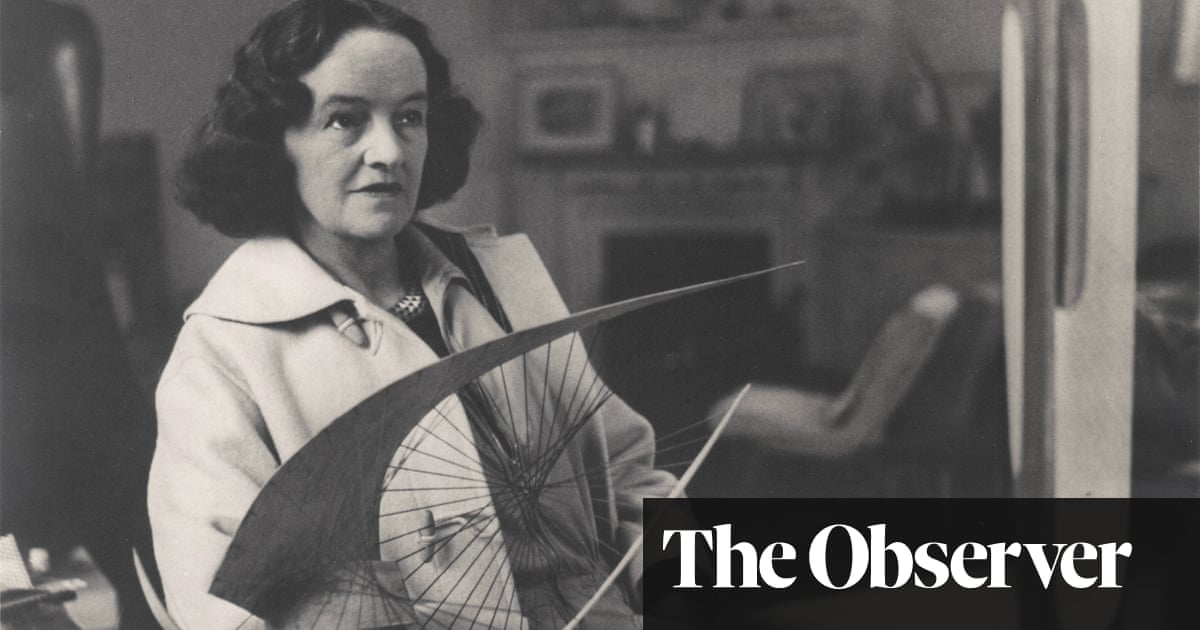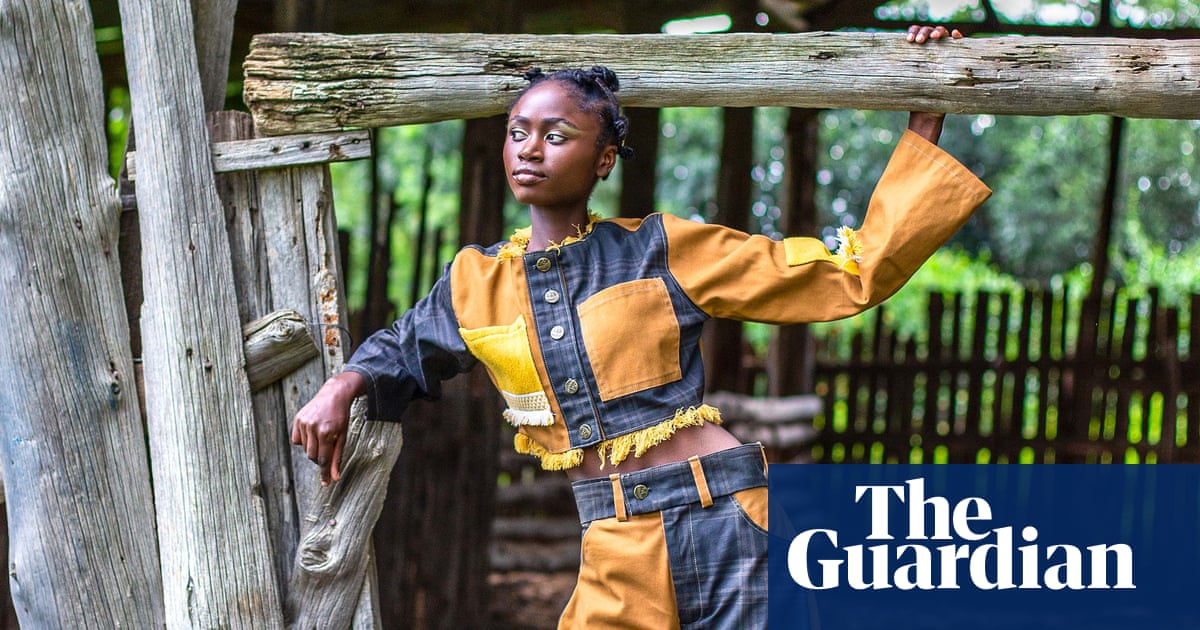On 10 December last year, the novelist and poet Han Kang had just finished having supper with her 24-year-old son at home in Seoul. They were discussing which tea to have – peppermint, berry or chamomile – when the phone rang. It was the Swedish Academy in Stockholm calling to tell her she had been awarded the Nobel prize in literature. Her first thought was to check the news, which confirmed that she was indeed the first Korean writer to become Nobel laureate. At 54, she is young by Nobel standards. She couldn’t call anyone, not even her parents, because her mobile phone was “on fire” with messages. She turned the sound off and she and her son returned to the question of tea. They plumped for camomile. “I thought we needed to calm down,” she laughs on a video call from Seoul. “It was a very, very peaceful evening.”
It was not so serene in the rest of the country. Han Kang fever swept across South Korea: government meetings were interrupted to celebrate the news; the printing presses couldn’t keep up with the demand for her books; the price of secondhand copies rocketed, and a trend for transcribing her work and posting it on social media took off. Han was not prepared for her new status as national hero. “Too much attention is not very good for writers,” she says, in her careful English. “You need anonymity, to be able to take a stroll in the street. You really need your calm inside.”
Wearing a chunky grey sweater, her face framed by a long fringe with a streak of silver, the author radiates composure from a distance of more than 5,000 miles. Although it is evening in Seoul, the high wood-beamed eaves of her traditional Korean house give the impression of sunlight. She lives with her son, having divorced from his father, a literary critic and professor, many years ago. Her Zoom background gives nothing away: there is none of the usual writerly paraphernalia, no bookshelves or photographs. After she gave up her job teaching creative writing at Seoul Institute of the Arts in 2018, Han and her son ran a tiny (about 10 sq metres) bookshop, Onulbooks, down an alley in the centre of the city. Fans gathered outside after the Nobel announcement. It didn’t make much money, but she loved curating and arranging the books with handwritten recommendations. “I even liked to turn on the lights at the opening and turn off the lights at the closing,” she says. “It was a secret for a while, but not any longer since last autumn.” She has now handed over its daily running to the manager.

It seems almost impossible that this softly spoken writer should be the author of such a deeply disturbing body of work. “All my novels are variations on the theme of human violence,” she has said. As the foremost chronicler of South Korea’s bloody 20th century, she has come to be regarded as her country’s spokesperson and conscience, shedding light on some of its darkest periods in its struggle for democracy. Her 2016 novel Human Acts is a harrowing account of the brutally suppressed student protest against the authoritarian government in May 1980 in the city of Gwangju, where Han grew up. After 10 days of demonstrations, an estimated 2,000 people (mainly civilians) were shot, beaten and tortured by the military forces. Her new novel, We Do Not Part, looks back to an earlier uprising against newly imposed martial law, this time on Jeju Island in the aftermath of the second world war. As many as 30,0000 inhabitants were murdered. Both massacres were denied or downplayed by the government and rightwing groups for years.
Han’s work gives voice to these national traumas, but its reach is universal. “What is humanity?” she asks in Human Acts. “What do we have to do to keep humanity as one thing and not another?” Her novels are not just the literature of witness, but acts of radical empathy.
Since the publication of her first book 30 years ago, she has been “trying to grope toward a bridge spanning the yawning chasm between savagery and dignity”, as she put it in an essay. One of the small miracles of her fiction is the way in which brutality and suffering coexist alongside tenderness and beauty, horror and rapture bleed into each other on the page. She speaks with the same poetic economy as she writes. “Humanity has such a broad spectrum,” she says now. “There is love and this sublimity and this gentleness.”
The work for which she is best known is The Vegetarian, her first novel to be translated into English. This luridly surreal feminist parable about a woman who gives up meat and believes she is turning into a tree was dismissed as “extreme and bizarre” when it was first published in South Korea in 2007. It is extreme and bizarre, brilliantly so. It won her a devoted new readership and the International Booker prize in 2016. Human Acts was published that year, followed by The White Book, an autobiographical prose poem on the death of her sister. Then she wrote Greek Lessons, a spellbinding story of a teacher who is going blind and a woman who has lost the ability to speak. Now she has returned to the political violence of Human Acts to write what she describes as its pair.
“It’s not like I decided: ‘OK, I’m going to deal with another massacre,’” Han says of We Do Not Part, set during that terrible winter of 1948, when one-tenth of Jeju Island’s population was killed in three months. It is also a story of friendship and motherhood, as starkly original and mysterious as The Vegetarian. Kyungha is a writer living in Seoul (the many parallels with the author are deliberate); her friend Inseon is a film-maker turned woodcarver who lives alone in a remote part of Jeju Island. When she is hospitalised after an accident, Inseon asks Kyungha if she might rescue her pet bird. In the course of Kyungha’s mission through a snowstorm to find this tiny creature, the devastating story of Inseon’s mother and the island’s hidden history are gradually uncovered.
Despite its horrors, We Do Not Part has a tranquil, dream-like quality, as if everything is covered in snow. “Yes, it is dealing with heavy and painful things,” she explains. “But I wanted to use very soft and light things, like snowflakes or the waving candle lights or shadows on the wall, the bird and the feathers.”
The middle child between two brothers, Han grew up in the city of Gwangju, in a house full of books and sadness. Her father was a struggling novelist. Her childhood was overshadowed first by the loss of her elder sister, born prematurely on the kitchen floor – “I’d been born and grown up in the place of that death,” she writes in The White Book – and 10 years later, by the public tragedy of the Gwangju massacre. In January 1980 when Han was nine, four months before the protests, her father gave up his teaching job and the family moved to Seoul. When she was 12, she discovered an album of photographs of the massacre taken by foreign journalists on a bookshelf with its spine turned the wrong way. “My parents wanted to protect me, but I was curious,” she says. “How could humans do this?”
Among the photos of young students mutilated and injured there was one of residents queuing to give blood to the wounded. “It was the moment when I faced the impossibly coexisting truth of humankind,” she says, the wound from which all her writing flows. “From my childhood, human violence is something which hurt me. And when you have a sore, hurting spot on your body, you keep checking on it, or you keep feeling it, and you have to touch it,” she says, gently stroking her arm.
For Han, writing is suffering. “When I write, I use my body,” she says in her Nobel lecture. “Having decided to write about mass killings and torture, how could I so naively – brazenly – hope to soon shirk off the agony of it?” her alter ego Kyungha reflects in the first chapter of We Do Not Part. She can’t eat or sleep and has terrible headaches and stomach cramps. Han has suffered debilitating migraines since childhood and, like Kyungha, experienced “extreme mental and physical pain” while writing Human Acts. She felt she needed to imaginatively share the trauma of the survivors and the bereaved, she says. “I had to lend my flesh to them, to lend my sensation to them. And inevitably, there was this pain.”
Han credits her migraines with giving her the humility and empathy necessary to become a writer. “Humans are fragile,” she says. Thankfully, the headaches have become much less severe since cutting out caffeine during lockdown. A few years earlier, when she was writing The Vegetarian, mysterious joint pain made the physical act of typing impossible. She wrote the first two-thirds by hand, and could only complete the last by typing with two ballpoint pens. Eventually her hands recovered, but she was afraid she might not write again.
After Human Acts was published, Han was surprised to discover that readers also felt pain reading the novel. She wanted to know why. “One day, I thought to myself, maybe it is because of our love that we feel pain together in front of all the evidence of violence and human atrocity or human debasement,” she says. “That was the beginning of We Do Not Part.”
She first heard about the Jeju uprising in her 20s, when she rented a studio on the island after giving up her job as a journalist to write full time. One day as she helped her elderly landlady carry a heavy parcel to the post office, the old woman stopped and pointed at a wall, telling the young Han that this was where many of the islanders had been executed. In 2018 she returned to spend two years on Jeju, commuting between the island and Seoul. Walking around the coast or in the forests, “feeling the Jeju weather”, all those years later, she felt she was getting “closer and closer” to the narrative of her next novel. “I could feel their emotion,” Han says of the bereaved families who had been voiceless for decades.
As with Human Acts, she started to collect historical documents and survivors’ testimonies. Her earlier research had taken in Auschwitz, Bosnia, Nanjing, and the massacre of Native Americans. “While I was writing these two books, I felt they were universal,” she explains. “The human atrocity which we have experienced throughout history and the world.”
We Do Not Part is the first of her novels not to be translated into English by Deborah Smith, whose enthusiasm for Han’s work was instrumental in introducing her to an Anglophone readership. Han shared her International Booker prize with Smith, but amid the resulting buzz around The Vegetarian a controversy arose about the book’s translation. Smith was accused of a number of “mistranslations” and stylistic changes, resulting in a “completely different book”. “It was savage and personal and worse behind the scenes,” Smith wrote in a recent essay following the Nobel announcement. “It wasn’t true,” Han says now in Smith’s defence. “There was confusion between mistakes and freedom of translation – the two points were mixed together.” A revised copy of The Vegetarian – with 67 corrections – was published in 2018. Smith is now writing a memoir about translating, and for this latest novel has handed over to Emily Yae Won, her co-translator of Greek Lessons, and American writer Paige Aniyah Morris.
Two days before Han flew to Stockholm to deliver her Nobel lecture, South Korea was thrown into turmoil once again when President Yoon Suk Yeol declared martial law at 11pm on 3 December. While the declaration was short-lived and Yoon suspended, there have been daily protests outside the National Assembly. “Of course it reminded me of the Gwangju massacre,” Han says. “It was really shocking. Nobody imagined this situation and it’s very difficult to read or predict what will happen next.” (Since we spoke, president Yoon has finally been arrested after a dramatic standoff and continuing protests.) Despite the troubling echoes of 1980, today’s digitally connected world makes the concealment of 40 years ago impossible. “There was no free journalism, there was no internet,” Han says. Now everyone has mobile phones. “They take light sticks and sing. It’s very moving,” she says. “I want to be hopeful.”
Does she feel an even greater responsibility to speak out as laureate? “I’m just a writer,” she replies. “I decided not to be influenced, or stop writing my own books because of the prize. I don’t plan to think about that much. I’m 54, so hopefully I have quite a time to write in.”
Kazuo Ishiguro used to joke that “writers won their Nobel prizes in their 60s for work they did in their 30s” (he was 62 when he became laureate). Han believes a writer’s most productive decade is their 50s. She is already on the third part of what she calls another “winter triptych”: three “very strange stories” set in contemporary Seoul, a companion piece to The White Book.
When she is writing she leads “a very disciplined life”, she says, going to bed early and writing first thing. Then she likes to walk and has favourite routes around her neighbourhood: “the connecting streets, alleys, and the small mountain,” she says. “I especially like to feel the minute changes of the forest every day.”
It is late now in Seoul and I don’t want to interrupt her routine. “The most important thing of We Do Not Part is love, not violence,” she adds before we say goodbye. “Yes, I wrote about massacres and human debasement and atrocities, but I wanted to write about love. As I get older, as time goes by, I feel I’m moving towards light.”

 2 hours ago
2
2 hours ago
2













































